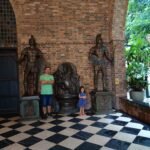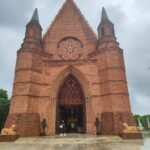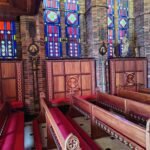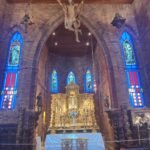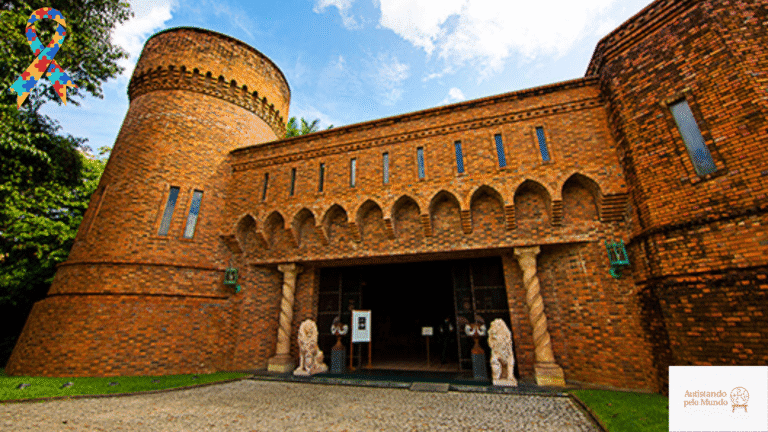
Ricardo Brennand Institute in Recife: our visit experience and accessibility
THE Ricardo Brennand Institute is one of Recife's best-known tourist attractions. Located in a large area surrounded by nature and historic buildings, the space houses a collection of art, sculptures, armor, and many other items of cultural value. Our visit was very interesting and enjoyable, and in this report, we want to share our experience with a focus on accessibility for people with disabilities and families with autistic people.
🎟️ Tickets and priority queue
Upon arrival, we found priority queue when purchasing tickets, which makes it much easier for those who need priority service. In addition, we receive a discount valid for both me and my husband, who was accompanying meThis care with the initial consultation makes a difference and makes the visit more inclusive.
⛪ Church, lake and outdoor space
We began the tour at the church located on the property. The space is very beautiful, with very sophisticated stained glass and structure. Outside, there is a lake and a fountain, creating a pleasant landscape that makes for good photos. The journey to the church is made in a themed cart, which draws attention due to its appearance, but unfortunately does not have adaptation for people with physical disabilities.
🏰 Castle and exhibitions
After the external visit, we went to the main part of the Institute, which is the castle. There are distributed art exhibitions, sculptures and historical collections. An area that attracts a lot of attention is the one that brings together ancient armor, swords and clothing, all displayed in an organized manner and with lighting that enhances each piece.
Although the space is large and well maintained, there are not many benches or resting places along the route. For people with reduced mobility or who need frequent breaks, this can be a challenge.
♿ Accessibility and points of attention
As it is a historic place, accessibility is still limited. We found many elevations, steps and stairs without grab bars, which makes access difficult for wheelchair users or people with mobility difficulties. Furthermore, there is no audio description, just a few captions on some of the works and pieces on display.
Another important point is that there are no sensory spaces or specific areas for breaks and sensory regulation, which can make the experience tiring for people on the autism spectrum.
💡 Reflection and suggestion
We understand that, as this is a listed and historic site, some structural adaptations are not possible. However, it is important that cultural spaces like the Ricardo Brennand Institute seek ways to improve inclusion, safety and comfort of all visitors.
Small improvements, such as creation of leaflets with accessible descriptions of the works, installation of support bars at critical points and provision of rest chairs, would already make a significant difference for many people.
✅ Our final impression
The visit to the Ricardo Brennand Institute It was very interesting and worthwhile for those who enjoy history and art. The place has a rich collection, beautiful scenery, and a unique atmosphere. However, it's essential that each family assess their accessibility needs before planning the trip, especially for those who use wheelchairs or require more adapted environments.
For more information on schedules, tickets and programming, visit the official website: institutoricardobrennand.org.br .
If you've visited the Institute or have other tips about accessibility in Recife, share your experience in the comments! This way, we can help more people travel safely and respectfully.
📣 Share your inclusion experience!
Have you had a positive accessibility experience at a park, hotel, restaurant, or other location? Your story could help other families plan more inclusive trips.
Send your report and it may appear here on the website, in our section Reviews or General Tips!

Don't miss any tips!
Sign up and receive our inclusive tourism experiences directly to your email.
Want to make tourism more inclusive?
We are open to partnerships with accessible spaces, inclusive inns and projects that value diversity.
Get in touch and let's talk!


